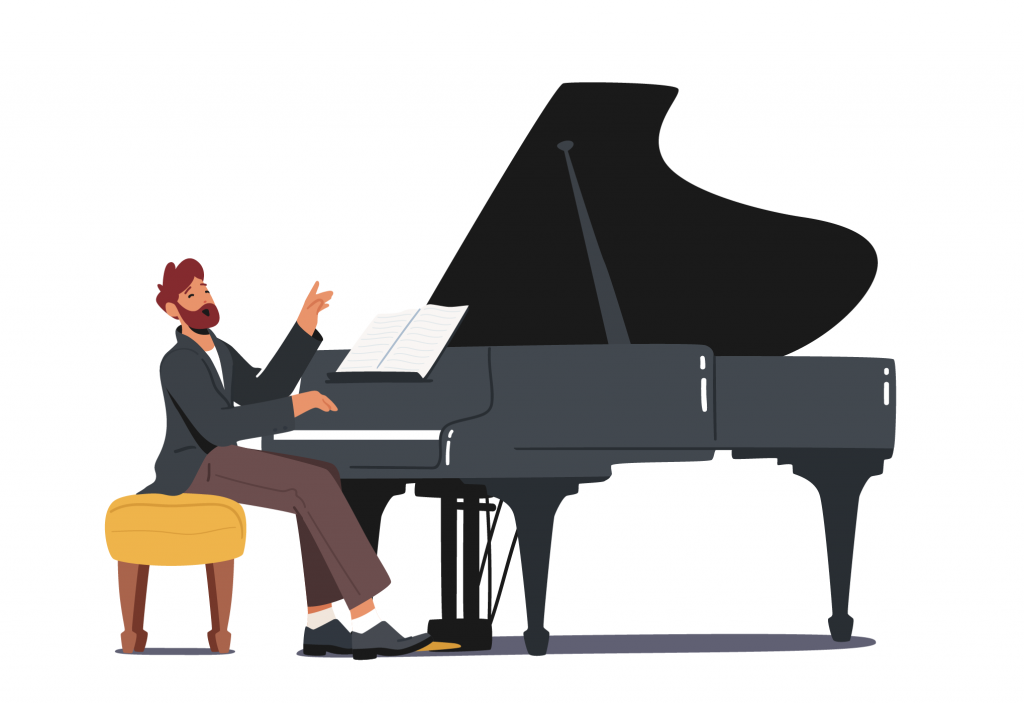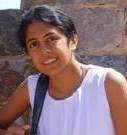Have you ever come across somebody who is always a step ahead of you no matter how much effort you pump into a task? I know I have. I was a conscious student who took down notes during lectures. I remember that we once had a test coming up, and a classmate of mine, who hardly showed up for lectures, borrowed my well-annotated notes on the day of the test and studied only ten minutes and topped the class. There I was, studying for the entire week or so!
So, are some of us just precocious? Or can we culture a skill with copious practice? This heated debate of nature versus nurture encompasses a wide array of distinct concentrations: music, dance, art and literature, sports, chess, mathematics and science, and foreign language (Howe, Davidson, & Sloboda, 1998). What is interesting is that the fields caught up in the debate are antithetic. On one extreme is the academic-oriented domain that includes mathematics or science; on the other extreme is the abstract domain for music, arts, or games. Studies have shown that students who are not viewed as having innate talent are less likely to receive help from others, and adults’ perceptions and expectations can have both a positive and negative impact on a child’s development (Brophy & Good, 1973).
Talent
A circumscribed connotation of talent is that it is an inborn ability (at the gene level) that guarantees success for the proprietor. A study by Professor Zach Hambrick, a psychologist at Michigan State University, revealed that natural talent does dictate if an individual becomes adept at an activity such as music or chess (Innes, 2013). The research, which examined fourteen cases of chess players and musicians to determine how practice levels affected their performance, demonstrated that practice only affected a third of the variance in skill in both the activities (Innes, 2013). Professor Hambrick attributed the remaining difference in skills to “innate ability and intelligence” and “the age at which people start the particular activity” (Innes, 2013).
In an antecedent study, Professor Hambrick also proposed that “working memory capacity,” which has a close affiliation with general intelligence, helps differentiate between the “good and great.” However, the view that talent overrides practice is not shared by all. For John Mignton—who is an award winning playwright, an author, the person to introduce pioneering knot and graph theory in mathematics, and a world-class math teacher—it was all about scrupulous training and zealousness (InPaperMagazine, 2011).

For someone who barely passed 1st year math in university, John Mignton introduced “pioneering knot and graph theory” in mathematics and is now a world-renowned math tutor. This contravenes the common perception of innate talent, that there would be an early indication of that talent to portend who is likely to succeed (Howe, Davidson, & Sloboda, 1998). This suggests that we can recognize and build our talent later on in our lives.
Anders Ericsson, a psychologist at Florida State University, and his researchers studied exceptional people in the field of soccer, surgery, piano playing, software design, writing, chess and other areas (InPaperMagazine, 2011). What is commendable is that it covers the whole gamut of expertise, from abstract domains like piano playing and games (chess) to academic domains like surgery and software design. This was unlike the previously mentioned research done by Professor Hambrick that solely focused on chess and music. Professor Hambrick’s research made me question if talent is a prerequisite for success for abstract domains like music and games and not for academic-related domains.
Nevertheless, according to Anders Ericsson’s research, we can master an activity, both depth-wise and breadth-wise, through a decade of deliberate practice (Kaufman, 2013).
Practice
It is not just practice but deliberate practice. Deliberate practice is more significant than our genes, our natural ability, our IQ, or the environment we were brought up in. It engenders new connections in your brain that help in constructing a skill over time (MyGuruEdge, n.d). So, what is the difference between practice and deliberate practice?
Practice is when a task is done repetitively till it reaches perfection. However deliberate practice amalgamates more than doing a task in iteration. It involves “setting goals, obtaining necessary feedback, correcting past mistakes, and focusing on the processes as well as the outcome” (InPaperMagazine, 2011). In his book The Talent Code, author Daniel Coyle explained the science behind practice. Continuous practice gives rise to more production of myelin, which is an insulated sheath around our nerve fibers. Myelin augments “signal strength, accuracy and speed,” causing our sensory responses to become more pronounced and our cognitive ability more eloquent (InPaperMagazine, 2011). Coyle’s research also elucidates that iterative practice is the only method through which myelin would wrap around the nerve fibers.

So, what are the steps for deliberate practice, and how can we start? Below is a outline to guide us through:
- Be motivated and disciplined to get through the rest of the steps. There is no point in picking up a new skill if you are not passionate to follow through.
- Obtain measurable feedback of time, percentages, etc. There is no point in tricking/convincing yourself by reassuring that you have made progress. To track your improvement and to gauge what you are doing right or wrong, measurable feedback is necessary.
- Practice a lot. However, do not blindly practice without paying attention to what you are doing. Observe yourself while practicing! For instance, if you are practicing mathematical problems, do not do the questions till you reach a correct answer. Instead, observe how your thought process runs. Regardless of whether you got the answer correct or wrong, revisit your steps and ponder on why it is wrong to do it as such (or correct to do it as such). Figure out while observing yourself what is not working for you (you can have someone else do it for you as well).
- Upon identifying what is not working for you, concentrate on your weaker areas.
- Understand yourself and invent new ways to practice. Each individual has our own unique ways of practicing, and what works for your friend may not work for you. (NewPlanetSchool, 2014)
To recapitulate, it is not about how much you practice but about how you practice. In other words, the quality of practice outweighs the quantity of it. In my opinion, the most difficult step to deliberate practice is motivation and discipline.
Environment and the Multiplier Effect
Talent is often viewed as something “manufactured” at birth. However, on the contrary, some argue that talent is something that is developed over time (Kaufman, 2013). Recent scientific discovery says our environment triggers gene expression. Thus, certain genes are activated for particular people because of environmental differences, leading to unique individuals with different learning abilities. Matt Ridley summarizes that genes are “mechanisms of experience,” and talent develops because of the communication of the genes and our environment (Kaufman, 2013). We cannot isolate talent and practice. They supplement each other and co-exist together.
According to Mr. Scott Barry Kaufman, the idea is that the subtle genetic or environmental edge one might have can catapult him to greater levels than others. He cited the following example: a child who is slightly taller or a kid who can read a bit better than his peers might get siphoned off to a basketball team or into an advanced reading group. This would cause a greater gap between the children who were put through a superior curriculum and those who weren’t (Kaufman, 2013). These multiplier effects also contribute as to why certain students perform well. In the specialized curriculum they are placed in, they are trained using a deliberate practice method by an expert mentor who can observe the improvement and mistakes made by a child to train them accordingly (one of the steps of deliberate practice).

Conclusion
In conclusion, the age at which an activity is picked up, the environment and opportunities we are exposed to, passion, and deliberate practice are keys to success. Furthermore, the aforementioned factors help in building our talent over time. Our talent is not determined at the time we are born, but is developed over time.
Brilliance is one part talent, two parts wisdom and three parts passion. — Margaret Mitchell
Originally published on the Zealousness blog in 2016. Revised and updated in 2022.
Read more personal development related articles on Zealousness blog Personal Development – iN Education Inc. (ineducationonline.org)
Bibliography
- Howe, M. J., Davidson, J. W., & Sloboda, J. A. (1998). Innate Talents: Reality Or Myth. Behavioural and Brain Sciences 21 399-442. Retrieved Apr 30, 2014, from Cogprints: http://cogprints.org/656/1/innate.htm
- Innes, E. (2013, May 21). Practice may NOT make perfect: Innate talent is what’s required for greatness in areas such as games or music. Retrieved May 1, 2014, from Mail Online: http://www.dailymail.co.uk/sciencetech/article-2328337/Practice-NOT-make-perfect-Innate-talent-whats-required-greatness-areas-games-music.html
- InPaperMagazine. (2011, Jan 15). Talent is made, not born: Is innate intelligence highly over-rated in our society? Retrieved May 1, 2014, from DAWN.com: http://www.dawn.com/news/599040/talent-is-made-not-born-is-innate-intelligence-highly-over-rated-in-our-society-2
- Kaufman, S. B. (2013, July 6). What is talent – and can science spot what we will be best at? Retrieved May 5, 2014, from The Gaurdian: http://www.theguardian.com/science/2013/jul/07/can-science-spot-talent-kaufman
- MyGuruEdge. (n.d). What Explains Academic Success? Retrieved May 5, 2014, from MyGuruEdge: http://www.myguruedge.com/impact-of-practice/
- NewPlanetSchool. (2014, Jan 14). Deliberate Practice: Quick Start Guide. Retrieved May 5, 2014, from YouTube: https://www.youtube.com/watch?v=gG3QPN9i8nI
- Quotes, Wise Famous. n.d. “Passion and Talent Quotes: Top 32 Famous Quotes about Passion and Talent.” Www.wisefamousquotes.com. Accessed October 11, 2022. https://www.wisefamousquotes.com/quotes-about-passion-and-talent/.























